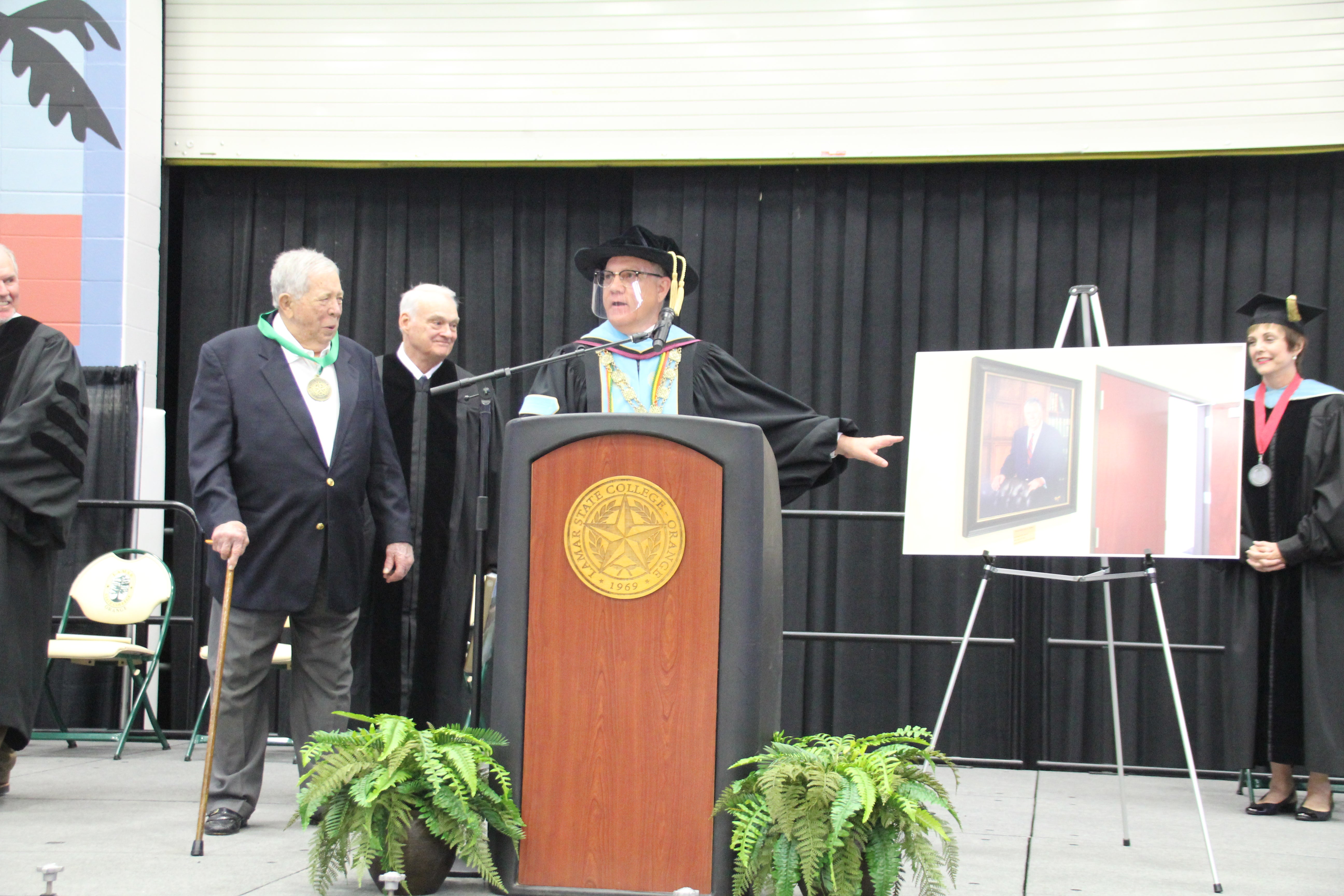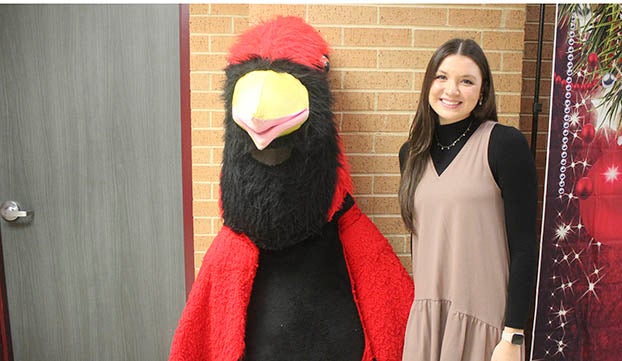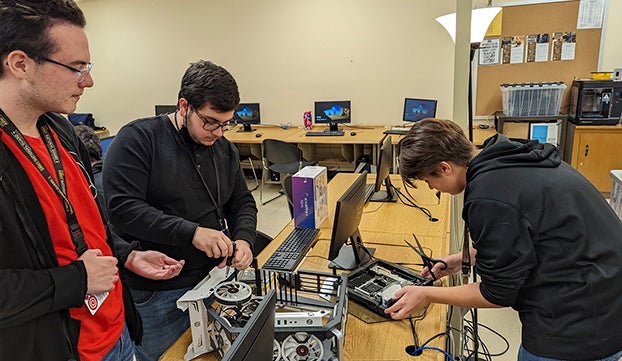LSCO honors fmr. State Senator Carl Parker with first ever honorary degree
Published 6:29 am Wednesday, May 19, 2021
|
Getting your Trinity Audio player ready...
|
PORT ARTHUR – Lamar State College Orange (LSCO) surprised former State Senator Carl A. Parker with its first honorary degree at graduation this Saturday at the Carl A. Parker Multipurpose Center on Lamar State College Port Arthur’s (LSCPA) campus, in gratitude for the Senator authoring the legislation that created LSCO and LSCPA and in thanks for his faithful stewardship of LSCO over the years.
With LSCO President Thomas Johnson to witness the presentation of the honorary Associate of Science in Business degree were Texas State University System (TSUS) Regents Bill Scott and David Montagne, along with TSUS Vice Chancellor Daniel Harper. LSCPA President Betty Reynard, along with LSCO Provost and Executive Vice President Wendy Elmore, Dean Suzonne Crockett, and Dean Brian Hull, were also present.
“We conferred an all-time Spring record of 263 degrees this Saturday, and none of those life-changing moments would have been possible were it not for Senator Carl Parker. His legislation, and his vision, for a college on the Sabine to transform lives in our community of Orange is one of his many great legacies. We are honored to award Senator Parker with our first-ever honorary Associate’s Degree,” said LSCO President Thomas Johnson.
A Port Arthur native, University of Texas graduate, and U.S. Navy veteran, Carl Parker was elected to the Texas House of Representatives in 1962 and served in the House until he was elected to the Texas Senate in 1977. He served as a senator of his district covering Orange and Port Arthur until 1995.
In his 33-year tenure, Parker authored or co-sponsored more than 400 measures that were enacted into state law, including the establishment of Lamar State College Orange and Lamar State College Port Arthur.
At his induction into the Hall of Fame at the Museum of the Gulf Coast, Parker said of LSCO and LSCPA, “Kids would never have graduated if we didn’t have those institutions in their hometowns. If you don’t have any method of transportation, you may as well be on the moon.”







